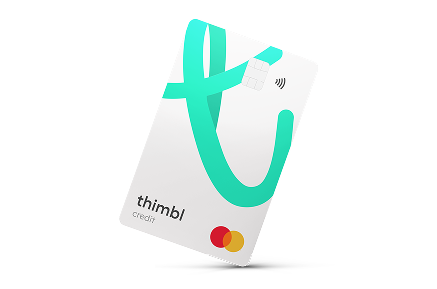Budgeting and Money Saving Tips
Joe Lytwyn - Senior Partnerships Manager | Published: 19th Oct, 2023

Money: it’s very much a part of our everyday lives, yet a lot of us still don’t feel comfortable talking about it. In fact, a 2022 study found that four out of five people struggle when it comes to opening up about their financial situation. The cost-of-living crisis has put pressure and financial strain on so many of us over the past few years. How to save money is a topic that is very much in the spotlight right now. As a nation, we have had to pull together to share our savvy money saving tips.
When it comes to money, everybody has different priorities.
Some of us plough every spare penny we earn into saving for our annual holiday, whereas others prefer to live for the moment and splash their cash on a night out every weekend. Some people save 20% of their monthly wage, and some don’t save at all.
We hear the word ‘budgeting’, and we immediately perceive it as a negative. We associate it with brutal cutbacks that will leave us feeling miserable. What we fail to realise is that budgeting can actually enhance our financial position, not hinder it. Simply making a few small changes here and there can make all the difference.
Number Crunching - Make a Payment Plan on Payday
Knowing exactly how much you bring home each month is the first step towards taking control of your money and learning how to budget. If you receive bonuses that are not always guaranteed, don’t include them when calculating your basic income. Make a note of all your essential outgoings (for example, bills, food shopping, childcare costs, transport/ car expenses) and deduct them from your net salary. The figure you have left is your disposable income.
It’s good to know exactly how much disposable income you’re working with every month to help you plan and budget accordingly. MoneyHelper offer a free budget planner where you can record all of your spends and receive a full breakdown of your finances.
Scrutinise your spends
Have a browse through your recent bank statements.
What type of spending do you have trending? Do you visit Costa on your way to work each morning, or order in a pizza every Friday night? These automatic habits can soon add up and rinse our funds without us even really noticing. We’ll talk a bit more about ‘wants’ and ‘needs’ later.
Are there any outgoings that you can cut altogether? For example, are you still paying for a gym membership you no longer use? Do you still use your Spotify account often enough to justify the monthly subscription?
Record every transaction
With contactless payments, it’s easy to tap, go… and forget.
It might sound tedious, but it’s a good idea to go over your transactions at the end of each day. This will help you keep track of your bank balance and may prevent you from accidentally slipping into that overdraft.
Be honest about your ‘wants’ and ‘needs’
When we tighten our belts, our disposable income tend to be impacted first, which can leave us feeling deflated.
It feels unfair that we should have to go without leisure activities and the things that make us happy just so we can keep up with the rising cost of necessities, such as food and energy bills.
Separating our ‘wants’ from our ‘needs’ can help to establish exactly where we can make little savings.
It’s not about closing the door on the things that bring us joy; it’s about making subtle adjustments to see us through the tough times.
When money is in short supply, thinking outside the box can ensure that we are still enjoying our lives, while making the pennies stretch that bit further.
| Common examples of ‘wants’ | Savvy saving swaps |
|---|---|
| Getting your nails done at the salon | Buy a few nice, good quality nail varnishes and DIY your pampering. |
| Going to the pub every Friday night | Invite your mates round for an evening in; games nights always go down well. Pool your money together to cover the cost of snacks. |
| A brand-new outfit before every night out | Consider getting on board with charity shop chic, or check out the phenomenon of the clothes renting market. For other clothing money saving tips, check out our blog. |
| Takeout coffee as part of your daily commute | Save the latte for a well-deserved Friday treat, and take your own flask to work the rest of the week. |
| Ordering-in a takeaway | Why not rustle up a ‘fakeaway’ instead? BBC’s Good Food website boasts over 90 fakeaway recipes to suit any craving. |
| Going out for meals | Host a dinner party at home. Ask each of your guests to bring an ingredient or a dish each to share the cost. If you are heading out, it’s good to know that breakfast and lunch can often work out cheaper than evening meals. Some establishments also run mid-week evening offers. |
Saving Saviours - Ready, set… SAVE!
Research has shown that 23% of British people have no savings at all, while a quarter have less than £100 in reserve. 51% of British people would be unable to live off their current savings for more than one month.
We understand that putting money away into savings is a lot easier said than done, especially when it feels as though you’re barely making ends meet.
When we think about saving, it’s possible that many of us assume that only large amounts count. This isn’t the case – even putting £10 a month aside is an achievement.
The benefits of saving:
- Peace of mind. Putting money aside for a rainy day can be useful should the unexpected occur. Having the ability to dip into savings can be a huge relief if you suddenly find yourself in a position where you need to replace your boiler or take the car to the garage.
- It’s rewarding. Watching your savings build up each month can be hugely gratifying, and can actually become quite addictive! Somehow, saving for something you want can make obtaining it feel all the more fulfilling.
- Money breeds money.Many banks offer monthly interest rates on savings accounts as an incentive. The more money you have saved, the more interest you will earn.
- It provides an alternative to credit. Credit can be a useful way to top up your funds in an emergency or to help pay for something big, like a wedding, or a new car. However, credit can come with its own financial pressures. If you are unable to make the monthly repayments, you could find yourself in debt.
- Saving can help us learn how to budget. Over time, saving might make us more disciplined with our spending habits and teach us how to manage money.
It’s interesting to see how the UK cost-of-living crisis has changed the way people save money.
Most of us have noticed significant increases in our basic outgoings - such as food shopping and bills - which has impacted how much disposable income we have left to either spend on ourselves or put away in savings.
There is no denying that times are tough, but there are things we can do to ease the burden.
The cost of food and non-alcoholic drinks rose by 18.4% between May 2022 and May 2023. 46% of adults in the UK said they were buying less food when shopping in a bid to keep costs down.
Is it time to end your affiliation with your go-to supermarket and bring home the bacon for less?
In June 2023, Aldi was found to be the cheapest supermarket in the UK for the 13th month running, with an average basket cost of £75.25, compared to Sainsbury’s £83.46 and £91.80 at Waitrose.
Swapping brand names for supermarket own labels could save you a considerable amount of money on your weekly shop.
For example, sour cream Pringles will set you back £1.95 at Aldi, whereas’s Aldi’s own version, Snackrite, cost £1.49, equating to a saving of 46p. A packet of six Warburton’s crumpets are on sale for 90p at Aldi; however, a six pack of Aldi’s own Village Bakery crumpets are half the price at 45p.*
For more food money saving tips, have a browse through our blog.
From council tax to electricity, it’s no secret that many of us are paying more than ever towards our monthly bills. Energy prices rose by 8.1% between May 2022 and May 2023, and Water UK estimated that water bills were set to rise by an average of £31 to £440 a year from April 2023.
Things like using an air fryer rather than the oven, turning electrical appliances off standby, and investing in an electric blanket rather than cranking up the heating could help to lower your energy bill.
Struggling to pay your energy bill? Know that you have options, and try not to panic.
If you have a water meter in your home, your bill could be reduced with small adjustments such as keeping your showers to under four minutes and turning the tap off when you’re brushing your teeth.
Is the price of your broadband getting you down? You are well within your rights to call your supplier and ask for a better deal. Use price comparison sites to view an array of rates, and don’t be afraid to quote cheaper deals to your existing provider when you’re thinking of switching. Your existing supplier will not want to lose a customer and may offer to price-match.
If it’s not the price of fuel going up, it’s the cost of using public transport. When thinking about how to save money, see whether you can start by making little lifestyle changes here and there.
Before you hop in the car, stop and consider if you can walk or bike to your destination instead. Of course, if it’s raining or you’re in a rush, the last thing you want to do is get on your bike! But if you’re simply about to indulge in a habitual five-minute drive up to the post office, it may be more cost-effective to go on foot and save the fuel.
If you’re planning to take a trip on the train, it’s useful to know that tickets are often cheaper when they are first released, around 12 weeks before the date of travel. Book as early as possible to cash in.
Sometimes, we feel like we need a bottomless purse to source the seemingly never-ending stream of demands, such as school uniform, swimming lessons, football boots, and school trips. Occasions such as birthdays and Christmas can result in immense financial anxiety for families.
Where possible, consider buying presents in the January sales, check out eBay, and suggest that the adults in the family give present-exchanging a miss and focus on the kids instead. Be up-front about your situation. Remember, you are under absolutely no obligation to spend more than you can comfortably manage. Of course you want to spoil your loved ones and grant their wish lists, but it is true that money does not buy happiness.
Think back to your own childhood. When you recall birthdays, do you remember the specific presents, or the quality time spent with your family and friends? The laughter that filled the house as Dad pinned the donkey’s tail on Grandad by accident. The cake that your Mum spent all morning making and painstakingly decorating. The friendship bracelet that your bestie crafted for you, which you refused to take off for three years.
There might be a few initial whinges when that extortionate games console doesn’t turn up under the tree, but your time, company, laughter, and friendship are what will really be remembered.
New to parenting and struggling to financially find your feet? There are plenty of ways to save money while enjoying every second with your new arrival.
We are a nation of animals lovers. From hamsters to horses, many of us can’t imagine life without our beloved pets.
Our wonderful furry friends aren’t without their money-burning tendencies, though. Food, grooming needs, daycare, dog walkers, insurance, and vet bills are just some of the costs associated with pet-owning.
Learning how to groom your pet at home, buying food in bulk, and finding a nearby friend or family member willing to visit and exercise your four-legged friend during the day rather than paying for a walker could all be quick-fixes to pocket some extra money. You can also find further money saving tips and advice on how to reduce the cost of pet ownership, including where to find local pet food banks.
While it may be tempting to cancel your pet insurance to relieve your monthly outgoings, this could end up costing you more money and a lot more heartache in the long run if your animal falls ill. Before you make the decision to cancel your pet insurance, make use of comparison sites to shop around for the best deal.
Thinking about welcoming a beautiful dog or cat into your family? The RSPCA have devised a ‘pet calculator’ to help break down potential costs.
Sadly, debt has the tendency to snowball if it is not managed. You may accrue monthly interest rates on outstanding credit or additional fees if pre-agreed repayments are missed. If you are worried about debt and feel things are getting out of control, you should speak to a debt advice charity as soon as possible.
Battling with money worries and being in debt can feel stressful and isolating. It’s important to remember that you are not alone. Need some help? Websites such as Citizens Advice Bureau, MoneyHelper, National Debtline and StepChange offer free, impartial financial advice, as well as informational on any additional help you might be entitled to.
Did you find this article helpful?
Let us know how we can be more helpful
Please leave your anonymous feedback to help us keep improving.
About the author
7.5+ years financial experience







